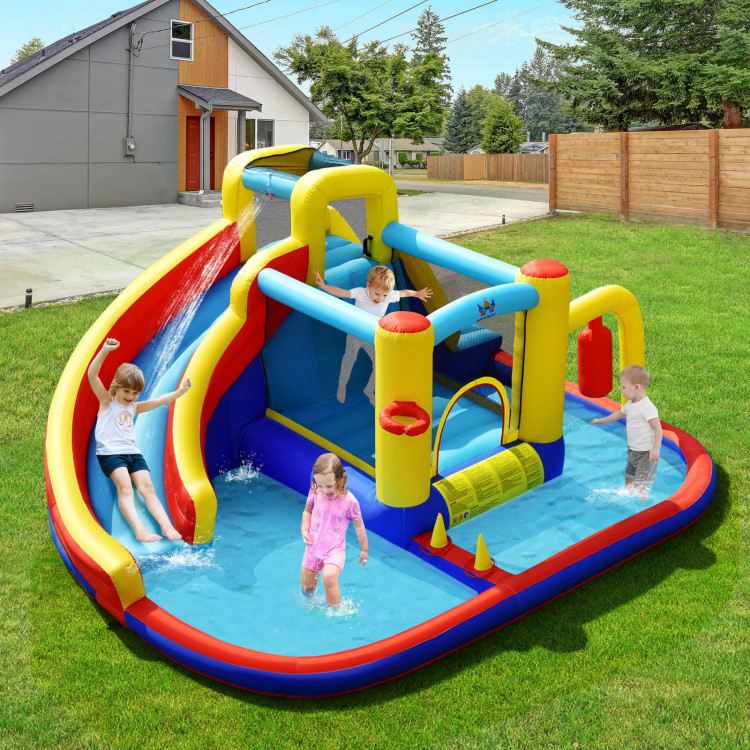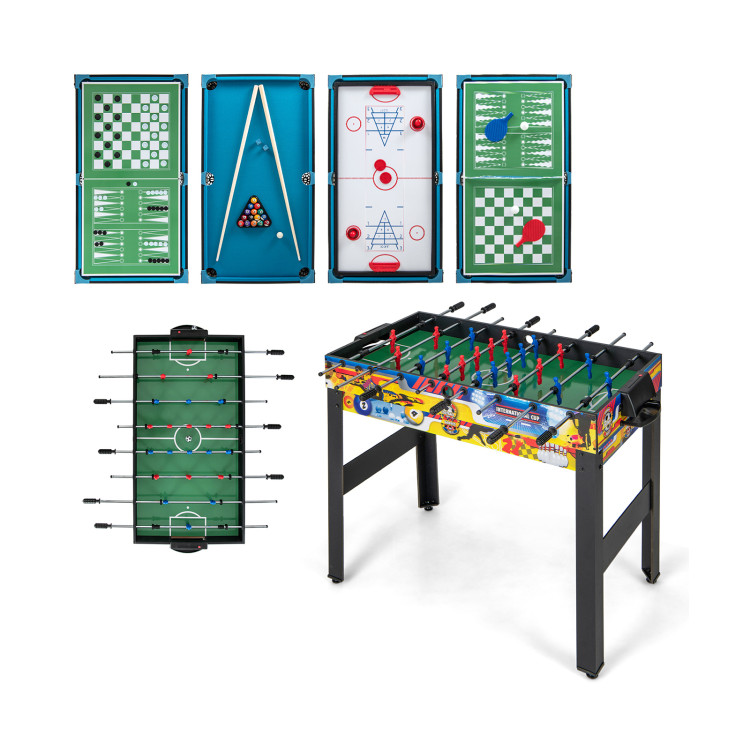Are We Trading Playtime for Pixels? How Our Social Media Habits Shape Our Kids
I remember making forts out of blankets and conjuring imaginary worlds in the backyard. I’d end the day with skinned knees and sticky fingers from homemade cookies. Ah, those were the days before notifications and screens.
Today? Parents are glued to their phones, and children tug at their sleeves, begging for attention. Maybe you’ve been that parent, lost in endless Instagram scrolling while your little one shows you their “masterpiece” created with crayons and glitter glue. We’ve all been there, haven’t we?
But while we chase likes and comments, our kids miss out on something precious: us. Please make no mistake: our digital habits quietly shape their world without us knowing.
Studies paint a sobering picture. Kids whose parents are constantly on social media are more likely to have behavioral issues, struggle with anxiety and depression, and even have trouble making friends. We’re trading playtime for pixels, and our kids pay the price.
A 2017 study in Pediatrics found that babies and toddlers exposed to more screen time scored lower on developmental tests. And for teens, the picture could be brighter. A 2019 study in the Journal of Adolescent Health linked excessive social media use to higher rates of depression and anxiety. It’s a wake-up call for us all: our love affair with social media isn’t just hurting us; it’s casting a shadow on our kids’ futures.
So, let’s explore this complex issue together. Let’s discuss how our social media habits are changing family dynamics, impacting our kids’ development, and how we can reclaim those precious childhood moments before they slip away.
The Double-Edged Sword: Social Media’s Promise and Peril
Social media is like that shiny gadget you just have to have. It promises the world—connection, learning, and belonging. But like any powerful tool, it can be used for good or for bad.
- Your child can now explore the ocean’s depths from their living room. They can also chat with a real-life astronaut about life in space without leaving the house. Social media allows kids to learn much, connecting them to educational resources, inspiring communities, and providing mind-boggling experiences.
- As an example, my daughter became obsessed with marine biology after finding an online community of ocean lovers. She watches documentaries, joins online discussions, and volunteers with a local marine conservation group. Who knows? She might discover new fish someday!
- In today’s world, family members often live on different continents. Social media can be a lifeline, allowing us to stay connected to loved ones nearby. Video calls, photos, and silly messages help bridge distances and strengthen bonds with loved ones.
- I cherish my weekly video calls with my parents, who live thousands of miles away. Seeing their faces and voices fills my heart with warmth and reminds me that we’re still connected even though we’re apart.
- Being a parent can be lonely, especially in the early days when you’re sleep-deprived and overwhelmed. It’s beneficial to connect with other parents who “get it.” Online communities are full of support, advice, and belonging.
- Those early days of motherhood seem like yesterday to me. Nights of sleeplessness and a constant feeling of, “Am I doing this right?” Finding a mom community online who felt like I was was a game changer. It was like having a virtual village to lean on. I could ask questions, share my struggles, and get encouragement from women who understood.
But here’s the catch: social media isn’t all sunshine and rainbows. We must be aware of a dark side, a hidden undercurrent of risks and unintended consequences.
- Social media offers a highlight reel of perfectly captured moments and curated lives, but it’s distorted. When kids and teens see this idealized reality, they feel inadequate, anxious, and low self-esteem.
- My son compares himself to flawless athletes and influencers he follows online. Watching him get down on himself is heartbreaking because he has no six-pack or a million followers.
- It’s challenging for kids to focus on things that are only sometimes rewarding, like reading, playing outside, or having meaningful conversations. This is because social media’s instant gratification and constant stimulation rewire their brains.
- Research has shown excessive screen time negatively impacts attention spans, sleep patterns, and academic performance. Honestly, I’ve seen it in my kids. They struggle to concentrate on their homework after spending hours scrolling through TikTok or playing video games.
- While social media can help us connect in many ways, it can also erode empathy and emotional intelligence, two essential communication skills. Those who spend less time on technology might have less practice reading non-verbal cues, interpreting emotions, and navigating complex real-life social situations.
- The same happens with my kids. Sometimes, they struggle to recognize how their words or actions affect others, especially in face-to-face interactions. It’s like they’re missing those subtle cues we notice.
Raising Digital Natives: Guiding Our Kids Through the Social Media Maze
So how can we, as parents, harness social media’s potential while mitigating its risks? Mindful modeling, open communication, and proactive mediation can guide kids through this digital jungle.
- Be the Change You Want to See: Our kids are like tiny sponges, soaking up everything they see us do. If we’re constantly glued to our phones, they’ll learn that it’s OK to prioritize the digital world over real-life connections.
- That’s why I consciously put my phone down when with my kids. I want them to know that they have my undivided attention and that I value our time together more than online interaction. It’s not always easy, but it’s worth it.
- Let’s Talk About It: Creating a safe and open space for conversations about social media is crucial. We must talk to our kids about online safety, responsible digital citizenship, and the potential pitfalls of excessive screen time.
- You have to talk to your kids about cyberbullying, online predators, and privacy. It’s a challenge at times, but these conversations are essential. I had a heart-to-heart with my daughter recently about how dangerous it is to share personal info online and how important it is to be critical.
- Our kids must learn to evaluate online information, identify fake news, and protect their privacy. We must ensure they have the skills to navigate the digital world safely and responsibly.
- In addition, we can encourage them to use social media for positive reasons. This includes connecting with family and friends, learning new things, and expressing themselves. My son loves making videos and posting them on YouTube. I’ve helped him explore YouTube’s educational channels and find other young creators who share his interests.
Building a Digital Fortress: Strategies for a Healthy Tech Life
Integrating social media into our families doesn’t have to be a constant battle. We can create a healthy, balanced approach that benefits everyone by implementing simple strategies.
- Creating a family media plan is like having rules for chores, bedtime, and homework. It outlines clear expectations for social media. You could set time limits, designate a device-free zone, and encourage other activities like art, music, and sports.
- We have a “no phones at the dinner table” rule and a “digital detox” hour every evening, during which we turn off all our devices to spend quality time together without distractions.
- Your kids should use social media intentionally and mindfully, limiting passive scrolling and mindless consumption. Please encourage them to engage in activities that promote creativity, learning, and positive social interaction.
- I encouraged my daughter to join online book clubs and writing groups so she could meet people with similar interests and talk about meaningful things.
- Lead by example: Remember, actions speak louder than words. By modeling responsible social media habits for ourselves, we set the tone for our children and demonstrate the importance of balance and moderation.
While spending time with my kids, I put my phone away. I want them to know that I give them my full attention and value our time together more than anything online.
Building a Digital Fortress: Strategies for a Healthy Tech Life
Integrating social media into our families doesn’t have to be a constant battle. We can create a healthy, balanced approach that benefits everyone by implementing simple strategies.
- The Family Media Plan: Just like we have rules for chores, bedtime, and homework, we can create a family media plan that outlines clear expectations for social media use. This might include setting time limits, designating device-free zones, and encouraging alternative sports, music, or arts and crafts activities.
Our family has a “no phones at the dinner table” rule and a “digital detox” hour every evening, during which all devices are turned off. This allows us to connect without distractions and enjoy quality family time.
- Mindful Engagement: Encourage your kids to use social media intentionally and mindfully. This means limiting passive scrolling and mindless consumption and focusing on activities that promote creativity, learning, and positive social interactions.
I’ve encouraged my daughter to join online book clubs and writing groups. These groups allow her to connect with others who share her interests and engage in meaningful discussions.
- Lead by example: Remember, actions speak louder than words. By modeling responsible social media habits for ourselves, we set the tone for our children and demonstrate the importance of balance and moderation.
I’ve put my phone away when spending time with my kids. I want them to know that they have my undivided attention and that I value our time together more than online interaction.
The Bottom Line: Raising Tech-savvy Kids in a Hyper-Connected World
Regarding parenting in the digital age, we’re in uncharted territory and facing unexpected obstacles. In this ever-evolving world, we can help our children thrive by embracing the opportunities and navigating the challenges with awareness and intention. Using technology responsibly, ethically, and purposefully isn’t about demonizing or banning it altogether.
Educate our kids so they can be savvy digital citizens, harnessing social media for their benefit while keeping a healthy balance between the online and offline worlds. Childhood is a fleeting moment, a tapestry of experiences and connections we should treasure and cherish. Let’s ensure our kids don’t spend their childhood glued to a screen, missing out on nature’s magic.
Explore the outdoors, play imaginatively, make friends, and discover the world’s wonders beyond the screen.
A Call to Action: Reclaiming Childhood in the Digital Age
Take a step back, re-evaluate our relationship with technology, and build a family culture where real-life connections are valued over digital distractions.
We can start by taking these steps:
- Create Tech-free Zones: Designate specific areas of your home, like the dining area or bedrooms, as tech-free zones. This encourages face-to-face interaction and fosters family bonds.
- Plan a digital detox: Take the family away from screens for a few hours each day or week. You can play board games and read books for a walk or a family picnic.
- Embrace the Power of Boredom: Let your kids experience boredom. It’s counterintuitive, but boredom sparks creativity, imagination, and self-discovery. Give your kids the chance to explore their interests and develop their resources. Refrain from entertaining them.
- Model mindful media use: Modeling responsible social media habits our children can learn from sets the tone for them and demonstrates the need for balance and moderation.
- It’s OK to ask for help if you or your child are struggling to manage your social media use. Many resources exist, including online communities, parenting groups, and therapists specializing in digital wellness.
Let’s reclaim childhood, one unplugged moment at a time, one unplugged step at a time. We can shape our digital habits and create a healthy balance between the online and offline worlds.
FAQs
It’s hard to see our kids struggle with anything, especially technology. Look for signs like anxiety or irritability when they can’t access social media, withdraw from friends and real-life activities, and neglect responsibilities (like chores or homework) to scroll. Could you also look at how much they sleep? Is it because they’re glued to their phones that they stay late or have trouble sleeping? Contact your pediatrician or a family therapist if you’re worried.
You want to protect your kids while respecting their privacy. It’s all about communication, right? Set clear expectations for social media use, and explain your concerns to your kids. You can use parental control tools to limit inappropriate content and screen time. Building trust with your child is important so they feel comfortable asking you anything.
Your child’s maturity level and the platform they’re interested in will help you determine when they should be on social media. You know your child best, so make sure they can handle online interactions responsibly, understand privacy settings, and navigate potentially harmful content. Most social media platforms have age restrictions (usually 13). Introduce social media platforms slowly under your supervision, starting with educational apps and websites. Your guidance is critical to guiding them online.
Yes! Please encourage them to use social media to connect with family and friends, learn new stuff, and express themselves. Teach them about online safety, responsible digital citizenship, and evaluating information online. Make sure you’re setting an example! Get off your phone and do screen-free activities with your kids so they know what healthy tech habits look like.
The web offers many resources to help you raise kids in the digital age. Websites like Common Sense Media and ConnectSafely have expert tips and advice. You can also get support from online parenting groups. Your child’s pediatrician or family therapist can always give you personalized advice.
Related Posts





















































































